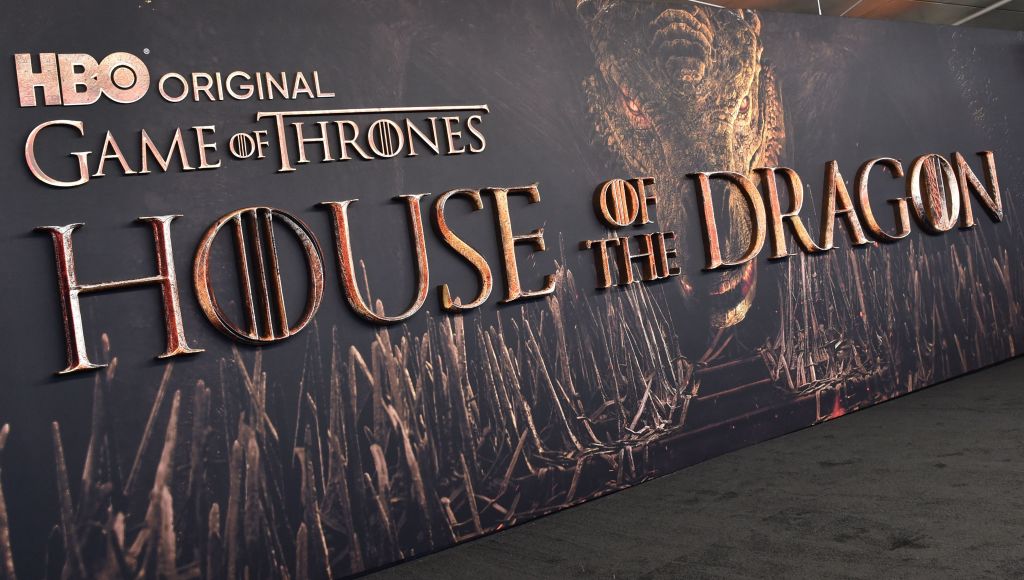Over the past couple of years, we’ve been warning the United States could be headed to a future similar to the world in the dystopian novel “The Handmaid’s Tale.”
But now, thanks to the Supreme Court’s decision to overturn Roe v. Wade, we are essentially living in the fictional world of Westeros from the popular series “Game of Thrones,” according to Vox.
On Sunday, “House of the Dragon,” the much-anticipated prequel to “Game of Thrones,” premiered on HBO.
Warning: This contains spoilers about the “House of Dragon.”
The first episode features a dramatic sequence in which King Viserys is confronted with a choice: have a C-section performed on his wife — Aemma– knowing it could kill her but lead to the delivery of his much-longed-for son to be his heir, or save his wife’s life.
And this is where Vox starts to tie together the “House of Dragon” world with our current world, as an article published on Monday argues, “The Game of Thrones prequel shows patriarchy at its most dehumanizing — but in a post-Roe world, it was effective.”
House of the Dragon’s childbirth scene was brutal. But in a post-Roe world, brutal is effective. https://t.co/nXmySfC5tb
— Vox (@voxdotcom) August 22, 2022
Vox’s Aja Romano suggests that the “childbirth scene sets up two of the major themes of House of the Dragon (HotD) — one being King Viserys (Paddy Considine)’s desperation for a male heir and the pressure riding on him to secure the line of succession for House Targaryen.”
And the “other, larger theme feels especially resonant in modern American life. The show wants us to understand that this is a world where women’s choices and even their bodily autonomy are severely limited. It’s a world that has abruptly become identical to ours in one respect: in post-Roe America, the state can now prioritize the life of the unborn child over the life of the mother.”
“Pregnancy is long and messy and costly and unsexy and relationship-altering, and that was true before the Dobbs ruling, which will significantly impact many aspects of prenatal care as well as the whole medical system around prenatal care,” the article adds.
Romano goes on to write that the new series is “the first major post-Roe TV series to present some kind of allegory for what just happened to women across the nation.”
“Viserys in this scene subverts all decent notions of how a husband is supposed to feel about his own wife and what he’s supposed to want to protect. Yet Viserys isn’t just acting as a husband; here he is literally the state itself. He is the king and thus the law; his concerns are about succession, about governing and continuing the Targaryen line above all else,” she adds.
Additionally, Romano points out that the “allegorical comparison to the state of the modern world” is made more obvious by the fact that “the attending midwives are all dressed in Targaryen red robes with white hoods, a uniform very similar to that of handmaidens.”
“Rather than feeling dystopian, this version of Westeros mostly just feels familiar — both as a return to a universe we know well and a universe that’s closer than ever to our own. It’s clear that the show intends to grapple with this dual enforced patriarchy — its own and ours — head-on,” the article posits.
Finally, Romano concludes, “This is what a large sector of the country wanted; this is what the state forcing women to give birth looks like. May you relish it. And get ready for more; this is, after all, only the beginning.”
There is so much wrong with the comparison. For one, we do not live in a world thousands of years ago governed by nihilistic kings with people who ride fire-breathing dragons.
For another, the Supreme Court’s decision overturning Roe left it up to the states how to regulate abortion. And in Kansas, a ballot measure that would have allowed for restrictions on abortion was handily defeated.
And finally, a “large sector” of the country does not want women to be forcibly subjected to a C-section while conscious to save a baby and then sacrificed without a say. That’s just wrong and a misrepresentation of pro-life views. While focusing on the heart-rending circumstances, this article ignores examples of women who seek abortions, not for medical reasons.
But aside from the lousy allegory to the Supreme Court decision, can we just watch TV and movies about medieval people slicing and dicing each other without having to inject modern-day politics into it?

























 Continue with Google
Continue with Google